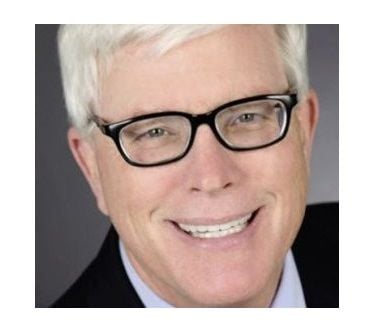
We are going to have to wait a long time for anyone to approach Donald Trump with, say, the detachment and scholarship that Robert Caro has brought to his study of Lyndon Johnson.
Caro published his first volume, "The Path to Power," in 1982, nearly a decade after LBJ died, and about 35 years later the biographer is still at work, on a fifth volume.
So it will be with Trump - as it is with all men and women who change history. We will have to wait until we get the end of the story and have access to all the primary sources. We also will need a biographer with the talent and dedication to find the "figure under the carpet," as Leon Edel described the biographer's task.
The many Trump books along the way should be regarded more or less as source material. They should be graded on how useful they will be to the ultimate project, and of course on the trustworthiness of their contents.
Ronald Kessler's new book, "The Trump White House: Changing the Rules of the Game," is trustworthy, and, in an unusual twist these days, it's favorable to the president. "Because of the liberal bias of the mainstream media," Kessler writes in a poker tell as obvious as any ever seen, "many of Trump's achievements are either underplayed or not reported at all." Kessler doesn't underplay them, and overstates some, but gets almost everything down - good and bad - of Season One of the Trump presidency. Among Trump's triumphs, Kessler points to the two most significant: the seating of Supreme Court Justice Neil M. Gorsuch, and the massive tax cut and tax reform bill. Kessler also got Trump to sit down for an interview on New Year's Eve at Mar-a-Lago, a conversation that shows the president confident and comfortable in his role.
(Buy the book at a 40% discount by clicking here. Or order in KINDLE edition at a 48% discount by clicking here. Sales help fund JWR.)
I checked with one of Kessler's sources, who is quoted quite liberally, and discovered that indeed the source spent time with the author. The source hadn't read the book yet but the voice he projects in the pages sounds right to me. Thus, Kessler's note-taking or tape-recording seems reliable, which is an odd but increasingly necessary assessment to include in a book review, but we are in an era when facts and sources are sometimes elusive. Kessler's book seems to me professional and ethical, a workmanlike, useful contribution to the accumulating pile of source material on this presidency (beginning of course with the tweets. All of them. Pity Trump's Caro).
Kessler, a former reporter for The Washington Post and a former chief Washington correspondent for the conservative news site Newsmax, has published 21 books. For this one, he interviewed the major players in the 2016-17 season: Reince Priebus, Stephen K. Bannon, Kellyanne Conway, Sean Spicer and others. "The Trump White House" deserves a careful reading as a chronicle of what went on inside Trump World in 2017.
Kessler conveys Trump's world in coherent, readable fashion, and provides the players' assessments of one another. Not surprisingly, the White House wasn't a "one for all, and all for one" sort of place in 2017, although some obvious good guys do emerge, such as Priebus, as do some obvious Machiavels, such as Bannon. No one, Kessler reports, was on the inside for reasons other than the obvious ones: Each White House staff member supported the president and hoped to advance his agenda.
Priebus and Spicer had long careers as likeable figures before their White House stints. So it is no surprise that in Kessler's rendering of Trump's rise to power, both come away as honest, good-humored and hard-working men, their reputations intact. You'd still hire them for jobs, still turn to them for advice, still trust them to keep a confidence. Although they are no longer working for Trump, they emerge in Kessler's pages as loyal - which can't be said for other former staff members.
Kessler assumes readers may have gaps in their knowledge of the Trump White House. My own blind spot concerned Melania Trump. I realized after reading Kessler's book just how large my deficiency was regarding the first lady and that it damaged my reporting in 2016. Kessler showed me that the first lady is much more influential than I had realized. One insight into her role: She was a voice in deciding who should interview Trump and when. I simply hadn't done my homework on her during the wild ride of 2015-16. (In my defense, that period was simply overwhelming with the constant flow of new faces - how could anyone keep up?)
Kessler gets readers up to speed on Trump's rise, but the book is only as good as its completion date. In the Trump White House, time marches on, relentlessly. All Trump chroniclers face this problem on an unprecedented scale compared with previous presidencies: This one moves so fast and changes so often - and it's not just the cast but the script, too.
Yes, Bannon said this and did that, but so what? He's gone. And not just gone, exiled. Priebus, by contrast, stays in frequent touch with Trump, who owes much to his former aide; in helping guide Trump's win, Priebus tackled the incoherence of the GOP's 2012 primaries and ordered the Republican contest by date and rules of participation (caucus vs. primary), arranged the dozen debates, insisting on conservative questioners in every one (I was one in the four CNN-Salem Radio debates), and helped orchestrate the early open and the close of the Republican National Convention in Cleveland without a meltdown.
But the fact is, Trump won in 2016, and Kessler's narrative drives this home. Nobody "designed" Trump's grand strategy except Trump, and Kessler's conversation with Trump reminds us why: Trump keeps his own counsel while consulting a wide variety of sources and keeps his eye on the end game, which is a mark of his success as he defines it.
I read Kessler's book just as Rex Tillerson ended his tenure as secretary of state and the very smart, loyal and hyper-competent Mike Pompeo was named as his successor, and the brilliant and capable John Bolton was chosen as the third national security adviser in 14 months, and the always enthusiastic and charming Larry Kudlow was named the president's top economic adviser.
Seeing all these changes reminded me that everything about this presidency is contingent. There won't be any judgments worth rendering until its conclusion. Like a very long rough cut of a complex movie that is added to daily, with the president's tweets and off-the-cuff remarks being the director's notes, Kessler's book is a review of a film still early in shooting and at least three years from release.
"The Trump White House" is nonetheless a useful read, even if some of the stories are told twice or 10 times. There's some new material and many absorbing interviews. And don't be surprised if this is the first in a series of books, perhaps annually, like the old World Encyclopedia updates. Trump history plows onward. But there's no "figure under the carpet" yet, and may never be.
(Buy the book at a 40% discount by clicking here. Or order in KINDLE edition at a 48% discount by clicking here. Sales help fund JWR.)


 Contact The Editor
Contact The Editor
 Articles By This Author
Articles By This Author